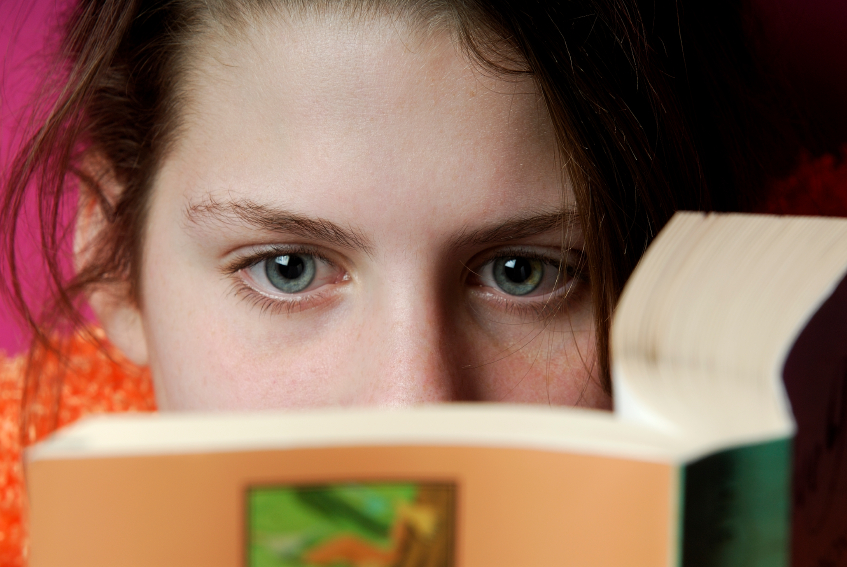I used to be—I used to be—(deep breath) a skimmer.
Yes, an impatient, unheeding, skimmer of literature. To be fair, my teenage tastes would not be considered "literature." (Blush.)
I tended to rush (in general) in my youth, perhaps fearing being left behind or taken advantage of by older, larger siblings. Yet one Shabbos—I even recall what I was reading, a romantic series involving espionage via a knock-off of The Scarlett Pimpernel, I think—when I realized I had no idea what was happening, and it was not fun.
I flipped back the pages, and started again. But my eyes still zoomed across the print. I started again. And again. And again.

It took faster than I expected to learn to read. To this day, I don't like to plow through articles and books; I prefer to savor.
Later still, when college required in-depth analysis, delving beneath the external veneer, I discovered further beauty in well-crafted prose, or even simple observations about the human condition.
In Bookends, Dana Stevens doesn't quite address the presented question, but I enjoyed her segue:
I don’t remember the moment I learned to read . . . But I do recall distinctly the moment, many years later, in which I started learning to unread. I was in my early 20s, at the start of a doctoral program in literature and just beginning to realize that for the first time in my experience, being a “good reader” — which then meant, in my narrow understanding of the term, a relatively speedy, indiscriminately voracious, knowledge-accumulating kind of reader — might not be enough to sustain me in my intellectual and professional life. All around me, it soon became clear, were examples of a different kind of reader, people (some of them professors, some colleagues and friends, some critics I knew only on the page) who read slowly but intensely, who measured their encounters with the written word in depth rather than in volume. These were readers who could spelunk into the literary and philosophical abyss and come back with insights that made me want to follow them down on their next expedition. . .
I recently had dinner with a friend from those grad-school days — one of my first exemplars of the benefits of this mode of reading — and he confessed that as time goes on, he finds himself reading slower and slower, as if every sentence (in a book worth reading, at least) offers up an infinity of potential rabbit holes. Hearing this was a reminder that — as anxious as I may get about all the great books I’ll never live long enough to cram into my head — there are times when the only strategy that makes sense is to stop cramming, take a deep breath and start again from the beginning of whatever sentence you’re on.
I've never been a skimmer and I read slower than some (make up for it by reading a lot of the time!). I had to learn to skim at Oxford, where I needed to read about ten books and articles a week in addition to actually writing my weekly tutorial essay.
ReplyDeleteI like to read slowly, to have interesting trains of thought triggered by a book, particularly if it's general non-fiction or Torah (although I get impatient to finish a book and consider it in its entirety). Even good fiction can trigger interesting thoughts, though. The novelist Howard Jacobson says we're wrong to assume that a good book is "unputdownable"; the best books are "putdownable" - they need to be put down to be savoured and to think through their implications.